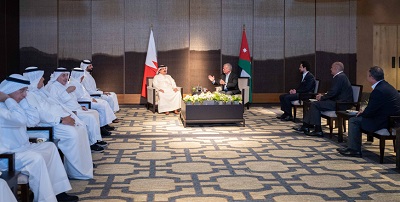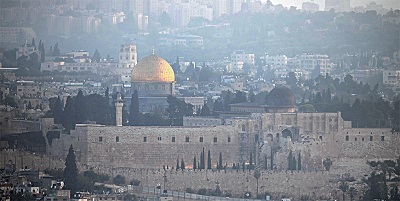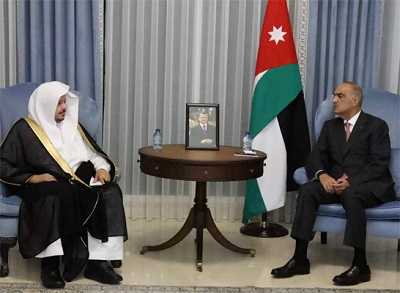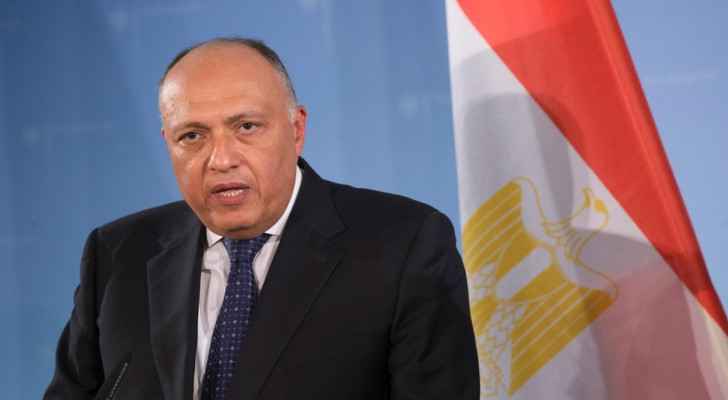Lebanese Election and the Broken Oar - By Amir Taheri, Asharq Al-Awsat
Amir Taheri was the executive editor-in-chief of the daily Kayhan in Iran from 1972 to 1979. He has worked at or written for innumerable publications, published eleven books, and has been a columnist for Asharq Al-Awsat since 1987
A general election in Lebanon is bound to be news if only because it is years overdue.
But what is it for?
Is it a step towards the exit from the maze of misery and terror that the Lebanese have endured for years or a step deeper into it?
The Tehran media see the Lebanese election as “a referendum on the Resistance” and expect a resounding endorsement of the role that the Islamic Republic “Supreme Guide” Ali Khamenei has scripted for Lebanon and tried to impose through a branch of his Hezbollah in alliance with the breakaway Maronite faction led by President Michel Aoun.
To win that referendum, Tehran last month wrote a $25 million cheque in “ extra help” for Hezbollah leader Hassan Nasrallah.
More money was raised through a number of concerts in the Islamic Republic mullahs where also invited “the believers” to dig into their pockets to help Hezbollah and its allies in all Lebanese communities secure “a glaring victory” (fath al-mobin). Nasrallah was portrayed as a caricature of Khamenei who is himself a caricature of the late Khomeini.
In contrast, Najib Miqati, the ephemeral Prime Minister in place, hopes that the election would persuade the International Monetary Fund (IMF) to sign its promised cheque of $5 billion in “emergency aid”. For his part, President Aoun, a caricature of General De Gaulle in reduced size, dreams of founding a dynasty through his ebullient son-in-law with support from Tehran.
Some optimists, including a few novices who have entered the mud-hole as candidates, talk of “new opportunities” that would allow Lebanon to redesign its economy by putting Beirut under international management, turning Lebanon into a regional transport and trade hub by building a railway between Beirut and the Bekaa Valley and, having secured support from IMF and the World Bank, return to the good old days when tiny Lebanon was a magnet for regional and international investment.
Many analysts, however, dismiss the whole thing as an exercise in futility that is bound to deepen the maze and keep it populated by the same ghouls and ghosts that have plunged over 70 percent of the Lebanese into poverty. In other words, we are going to have a political version of “Last Year in Marienbad” in which the same events are repeated ad infinitum.
According to them, we are certain to get the same cast of characters: Nabih Berri, who has been Speaker of Parliament for more than half of Lebanon’s existence, is sure to be back in his soiled seat.
The Druze chief, Walid Jumblatt, will retain his role as a weathervane, while the Sunni community will continue its downward spiral in germs of political influence and power.
So, should one dismiss the whole thing as the above-mentioned analysts do?
The IMF cheque is likely to turn out to be as imaginary as the promissory note of $11 billion was in 2018 if only because forming a new government is likely to take even longer. Pie-in-the-sky projects such as reviving the Beirut port, building a railway hub, and removing Bank of Lebanon from the life-support machine may never go beyond after-dinner talks.
Lebanon’s problem is fundamentally geopolitical in the sense that those who hold the reins of power regard the country either as a bunker or a glacis where the interest of outside powers trump those of the nation-state.
Worse still, those who exercise power have proved their utter incompetence, not to mention their corruption, for almost two decades. Hezbollah, which claims a veto-power on all key appointments and issues, has proved incapable of even ensuring security in its main support base in southern Beirut which is n ow dubbed as “the Shiite wild west” where even the rare Iranian tourists are advised not to venture without “proper protection.”
To Lebanon’s geopolitical problem we have to add the systemic de-institutionalization carried out by Hezbollah for decades. This means that all normal state institutions have been turned into hollow shells, while real decision-making is centralized in Khamenei’s office in Tehran.
To complicate matters further, we now have Bashar al-Assad, the bloodied-but-unbowed ruler of Damascus, who seeks a return to the Lebanese scene albeit as second violin to Iranian mullahs. In a lightning visit to Tehran, he tried to get a nod from Khamenei for one of Syria’s former lieges as the next Lebanese president.
A bleak prospect?
Yes, indeed. Nevertheless, even a bad election is less bad than no election. The fact that so many new faces, including women and young new political activists, have entered the ring is encouraging, although few are likely to slip through to victory.
More importantly, the Lebanese ruling elite know that they have lost whatever legitimacy they had in political and confessional terms.
Despite the grim prospect, despair is not warranted.
The 2019 popular uprising has sown seeds and that are bound to grow in time.
In both geopolitical and economic terms, Lebanon remains a valuable piece of real estate on the Mediterranean. Various Arab despots tried to turn it into a bunker for their dark designs or a beach for their capricious sorties. All failed while Lebanon succeeded in shaking them off and regaining control of its destiny.
There is no reason why the same pattern of release from oppression cannot be repeated in time, downsizing this election into a footnote in history.
The bigger picture in the region does not favor Lebanon’s oppressors. The Khomeinist regime is plunging into what could turn out to be a fatal political and economic crisis. With Russia bogged down in the Ukraine quagmire, the Assad clan’s dream of returning to Lebanon as a big player may turn out as a nightmare for them.
Regardless of the results, likely to be “ arranged”, Sunday’s election may yet turn out to be a referendum on resistance, the resistance of the Lebanese people against forces that try to de-Lebanize their country.
As daring seafarers, the ancient Phoenicians, ancestors of the Lebanese, knew how to weather the biggest storms while always keeping alive the hope of return to the coast of Tyre. The ancient Phoenician seafarer had a prayer as his talisman: “Oh, Goddess of Tyre, Mother of Carthage! I surrender my oar!”
The Goddess always received the broken oar and gave the seafarer a new one to safely continue his voyage home against the storms.
Latest News
 King, Bahrain monarch stress need to maintain Arab coordination
King, Bahrain monarch stress need to maintain Arab coordination Security Council to vote Thursday on Palestinian state UN membership
Security Council to vote Thursday on Palestinian state UN membership Dubai reels from floods chaos after record rains
Dubai reels from floods chaos after record rains Khasawneh, Saudi Shura Council speaker discuss bilateral ties, regional developments
Khasawneh, Saudi Shura Council speaker discuss bilateral ties, regional developments Egyptian Foreign Minister condemns potential Palestinian displacement as 'war crime'
Egyptian Foreign Minister condemns potential Palestinian displacement as 'war crime'
Most Read Articles
- Senate president, British ambassador discuss strategic partnership, regional stability
- Jordan urges UN to recognise Palestine as state
- JAF carries out seven more airdrops of aid into Gaza
- Temperatures to near 40 degree mark next week in Jordan
- Safadi, Iranian counterpart discuss war on Gaza, regional escalation
- UN chief warns Mideast on brink of ‘full-scale regional conflict’
- US vetoes Security Council resolution on full Palestinian UN membership
- Google fires 28 employees for protesting $1.2 billion cloud deal with “Israeli” army
- Biden urges Congress to pass 'pivotal' Ukraine, Israel war aid
- Israeli Occupation strike inside Iran responds to Tehran's provocation, reports say